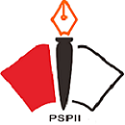The Role of Public Speaking in Islamic Religious Education Learning in the Digital Age
Abstract
Keywords
Full Text:
PDFReferences
Amalia, N. (2017). Program studi pendidikan agama islam (pai) fakultas tarbiyah institut ilmu al-quran (iiq) jakarta 1438 h / 2017 m.
Darmajaya, I. (2019). Inovasi Pendidikan-Kita Menulis ( 1 ) (Issue October).
Girsang, L. R. M. (2018). ‘PUBLIC SPEAKING’ SEBAGAI BAGIAN DARI KOMUNIKASI EFEKTIF (KEGIATAN PKM di SMA KRISTOFORUS 2, JAKARTA BARAT). Jurnal Pengabdian Dan Kewirausahaan, 2(2), 81–85. https://doi.org/10.30813/jpk.v2i2.1359
Maesaroh, S. (2014). Urgensi Public Speaking Terhadap Kinerja Guru. 78.
Maulana, I., Haromaini, A., Fikri, F., Fahmi, A., Islam, U., & Yusuf, S. (2021). Pengaruh pelatihan. 11(1).
Mursid, R., & Yulia, E. (2016). Pengembangan pembelajaran dalam teknologi pendidikan di era ri 4.0. Jurnal Ilmiah Mahasiswa Pendidikan Kimia, 1(3), 35–42.
Nieke Monika Kulsum. (2017). Modul public speaking. 1–65.
Pendidikan, J., Volume, S., Online, T., Mata, A., Sejarah, P., & Kunci, K. (2021). KEMAMPUAN PUBLIC SPEAKING DALAM PEMBELAJARAN SEJARAH Nara Setya Wiratama FKIP - Universitas Nusantara PGRI Kediri. ISTORIA: Jurnal Pendidikan Dan Sejarah, 17(1).
Predy, M., Sutarto, J., Prihatin, T., & Yulianto, A. (2019). Generasi Milenial yang Siap Menghadapi Era Revolusi Digital ( Society 5 . 0 dan Revolusi Industri 4 . 0 ) di Bidang Pendidikan Melalui Pengembangan Sumber Daya Manusia.
Rahayu, P. (2019). Pengaruh Era Digital Terhadap Perkembangan Bahasa Anak. Al-Fathin: Jurnal Bahasa Dan Sastra Arab, 2(1), 47. https://doi.org/10.32332/al-fathin.v2i2.1423
Simanjuntak, E. (2019). Peran Teknologi dalam Meningkatkan Kompetensi Guru di Era Revolusi 4.0. Prosiding Seminar Nasional Teknologi Pendidikan, 1(2), 429–434.
Supriadi, S. (2017). Pemanfaatan Sumber Belajar Dalam Proses Pembelajaran. Lantanida Journal, 3(2), 127. https://doi.org/10.22373/lj.v3i2.1654
Weigand, H.-G. (2010). Hoyles, C. and J.-B. Lagrange (eds.) (2010): Mathematics Education and Technology—Rethinking the Terrain. The 17th ICMI Study. ZDM. https://doi.org/10.1007/s11858-010-0286-1
Zed, M. (2014). Metode Penelitian Kepustakaan (Cetakan Pe). Yayasan Obor Indonesia.
DOI: http://dx.doi.org/10.24042/atjpi.v13i2.12911
Refbacks
- There are currently no refbacks.
Copyright (c) 2022 Al-Tadzkiyyah: Jurnal Pendidikan Islam

This work is licensed under a Creative Commons Attribution 4.0 International License.

Al-Tadzkiyyah: Jurnal Pendidikan Islam is licensed under a Creative Commons Attribution 4.0 International License. Copyright © UIN Raden Intan Lampung. All rights reserved.








